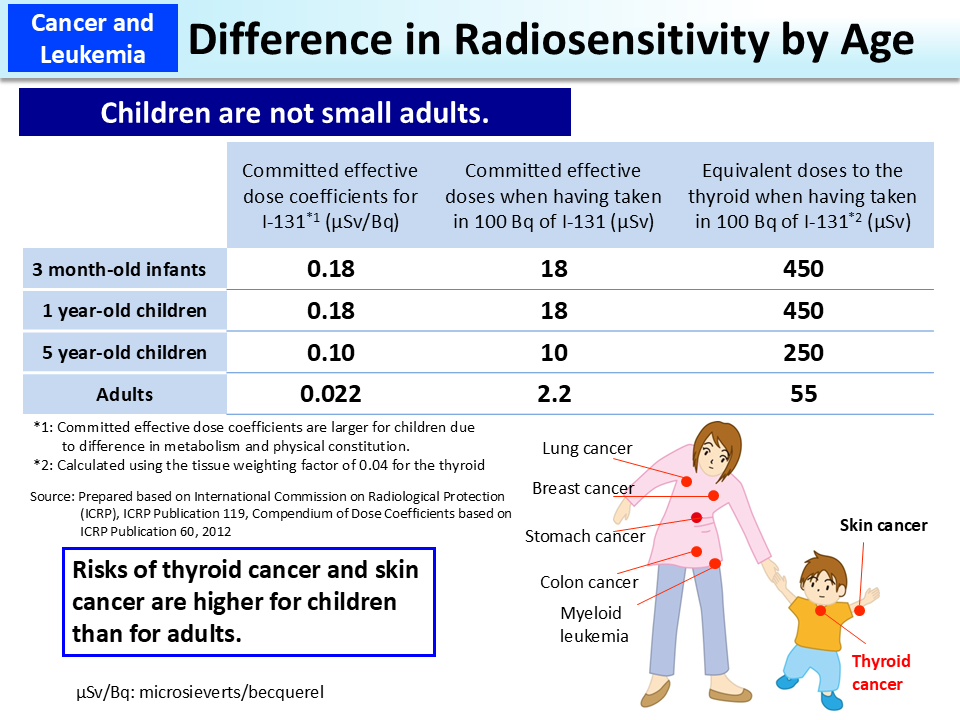Difference in Radiosensitivity by Age
In the case of adults, bone marrow, colon, mammary gland, lungs and stomach easily develop cancer due to radiation exposure, while it has become clear that risks of developing thyroid cancer and skin cancer are also high in the case of children.
In particular, children's thyroids are more sensitive to radiation and committed effective doses per unit intake (Bq) are much larger than adults (p.127 of Vol. 1, “Thyroid”). Therefore, the exposure dose to the thyroids of 1-year-old children is taken into account as the standard when considering radiological protection measures in an emergency. Additionally, much larger values are adopted as children's committed effective dose coefficients per unit intake (Bq) than those for adults.
(Related to p.120 of Vol. 1, “Relationship between Ages at the Time of Radiation Exposure and Oncogenic Risks”)
- Included in this reference material on March 31, 2013
- Updated on March 31, 2015

